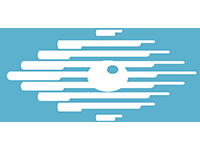How Do I Prepare for a Vision Test?
Preparing for a vision test can often lead to feelings of uncertainty, especially for those who are undergoing it for the first time. Understanding how to adequately prepare can enhance your experience, alleviate anxiety, and ensure that you get the most accurate results. This guide will provide you with crucial information on how to prepare effectively for your upcoming vision test. Additionally, we’ll include some pertinent questions for your optometrist that can help clarify any concerns.
Understand the Purpose of the Vision Test
Before diving into preparation specifics, it’s important to understand what a vision test entails. A vision test is designed to evaluate your eyesight and detect any potential issues. The results will help your optometrist determine if you need glasses or contacts, or if further evaluation is needed for eye health.
Familiarising yourself with this can help ease any apprehensions you might feel about the test. Knowing what to expect can turn anxiety into confidence.
Gather Your Medical History
Prior to your vision test, you will likely be asked about your medical history. To prepare effectively, consider the following steps:
- List of Current Medications: Document any medications, vitamins, or supplements you are currently taking. Some medications can affect your vision.
- Previous Eye Conditions: If you’ve had any previous eye problems, surgeries, or significant vision changes, make sure to inform your optometrist.
- Family History: Be prepared to discuss any family history of eye diseases, such as glaucoma or macular degeneration, as these can impact your eye health.
Having this information ready can help streamline the examination, making it easier for your optometrist to understand your needs.
Schedule Your Appointment Right
When you set your appointment for a vision test, make sure you are mindful of the timing. Here are a few tips:
- Avoid Wearing Contact Lenses: If you wear contact lenses, consider leaving them out for at least 24 hours before your appointment. This allows your optometrist to evaluate your eye health in its natural state.
- Choose a Low-Stress Time: Schedule your appointment for a time when you can be relaxed, avoiding times of day when you typically feel rushed or stressed.
By choosing the right time and avoiding contact lenses, you’ll have a more accurate assessment.
Bring Necessary Items
When preparing for your vision test, don’t forget to bring along the necessary items:
- Insurance Information: Bring your insurance cards if applicable, to make the billing process smoother.
- Glasses or Contacts: If you’re currently wearing glasses or contacts, bring them along. Your optometrist will want to assess their effectiveness during your exam.
- Notebook: Consider bringing a notebook to jot down any recommendations or advice from your optometrist during the visit.
Having these items ready will ensure you have everything you need for a productive appointment.
Prepare Questions for Your Optometrist
Before your visit, it’s beneficial to prepare some questions for your optometrist. Here are a few examples:
- What tests will you perform, and what do they measure?
- Are there any specific ocular health issues I should be aware of based on my age or family history?
- How often should I schedule vision tests in the future?
- What corrective options do you recommend based on my current prescription?
Asking these questions can not only provide valuable information but also give you a clearer understanding of your vision health.
Stay Calm and Relaxed
It’s natural to feel a bit anxious before a vision test. To help reduce this stress:
- Practice Deep Breathing: Simple breathing exercises can help calm your nerves before the appointment.
- Distract Yourself: Bring a book, listen to music, or use your smartphone to occupy your mind while waiting.
A relaxed state of mind will lead to a more positive experience.
How Do I Prepare for a Vision Test? – Final Thoughts
Preparing for a vision test doesn’t have to be a daunting task. By understanding the purpose of the test, gathering your medical history, scheduling wisely, bringing necessary items, preparing questions for your optometrist, and keeping calm, you can ensure that your appointment is efficient and informative. Regular vision tests are vital for maintaining optimal eye health and ensuring the best quality of life. Taking the time to prepare thoroughly will only enhance the benefits you receive from your visit.
Visit our blog page for more interesting eyecare articles

